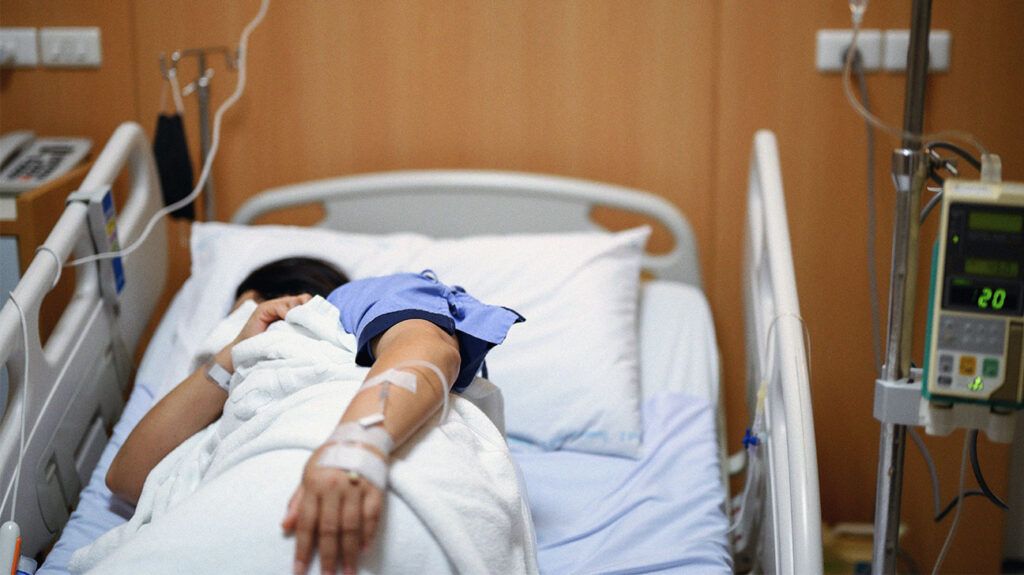Health experts consider a phencylidine (PCP) overdose a medical emergency that requires immediate treatment. Different treatments are available and may include sedation, activated charcoal, and airway protection.
PCP is a dissociative drug, commonly in liquid, capsule, or white crystal forms. It can cause people to have hallucinations, feelings of detachment, and distortion of their sight and sound.
Long-term use of PCP can affect a person’s mental health, including causing anxiety and depression. It can also affect their memory, thinking, and speech. People may become dependent on PCP over time.
The full name for PCP is phenylcyclohexyl piperidine. Other names for PCP include:
- angel dust
- rocket fuel
- elephant tranquilizer
- horse tranquilizer
- rocket fuel
- peace pill
- zoom
- embalming fluid
There are several phencyclidine overdose treatment options that are normally successful. However, a PCP overdose is a medical emergency. As such, people should always receive treatment from healthcare professionals.
Overdosing with PCP can cause people to have seizures and go into a coma and it may be life threatening. Doctors can successfully treat most PCP overdoses. However, supportive care including close monitoring by a team of healthcare professionals is essential.

- Physical sedation: Healthcare professionals may physically restrain a person if they are agitated, violent, or have drug-induced episodes due to a PCP overdose. They may also place them in a calm and quiet environment with dimmed lights.
- Sedative medication: Doctors may sedate a person with medication such as benzodiazepines or antipsychotics.
- Activated charcoal: Activated charcoal is a powder that doctors
can use to treat overdoses . It binds to a drug, stopping it from being absorbed from a person’s stomach into their bloodstream. Doctors will only use activated charcoal within 1 hour of the time a person took PCP. However, this may not be effective if a person inhales PCP. - Airway protection: PCP can affect a person’s breathing, or respiration. Doctors will monitor a person’s breathing. They may use a tube to keep a person’s airway open and use a machine to help them breathe properly. This is known as intubation with ventilatory support.
- Monitoring: PCP can affect a person’s heart rate and blood pressure. Doctors will monitor both and check how well a person’s heart is working. This is known as hemodynamic monitoring. They will also perform additional heart treatments if necessary.
- Psychiatric evaluation: Doctors may recommend this to manage a person’s behavior. They do so after medical symptoms and complications have resolved.
Phencyclidine intoxication can present in many ways. People who have overdosed with PCP may have a
- malignant hyperthermia, or where a person’s body cannot control its temperature and overheats
- rhabdomyolysis, a rapid breakdown of a person’s muscles that
can be fatal or cause permanent disability - renal failure, where one or both of a person’s kidneys stop working
PCP overdoses can also be suddenly fatal. If a person suspects they or another person is having a PCP overdose, they should immediately seek urgent medical attention.
Symptoms of a PCP overdose or high doses of PCP can include:
- nausea and vomiting
- drooling
- trouble breathing
- loss of balance
- slurred speech
- rapid eye movements
- changes to how a person’s eye looks, including:
- dilated pupils, or when a person’s pupils are large
- very small or pinprick pupils
- dizziness
- paresthesia, a burning or prickling sensation usually felt in a person’s:
- hands
- arms
- legs
- feet
- seizures
- aggression or violent behavior
- coma
Taking PCP over a long period may result in dependency, or needing to take PCP in order to function. Long-term PCP side effects may also include:
- memory loss or problems
- speech problems or difficulty
- thinking problems
- anxiety
- depression
- suicidal thoughts
- social withdrawal
PCP is a
It is not advisable for a person to use PCP. However, if a person chooses to, they can take some precautions to reduce their risk of harm or overdose with PCP. These include:
- taking small amounts or low doses of PCP at a time
- avoiding taking PCP often
- taking PCP in a positive, safe space with a trusted person
- having a trusted person who is not using the drug to monitor them while under the effects of PCP
- avoiding taking PCP with other substances
- avoiding taking PCP with:
- alcohol
- benzodiazepines, Valium-like substances
- staying hydrated
PCP withdrawal symptoms can include:
- headaches
- sleepiness
- depression
- increased appetite
People who are experiencing severe symptoms or are in immediate danger should obtain immediate medical attention. They can do so at an emergency department or by calling 911.
People with a PCP overdose should always receive immediate treatment from healthcare professionals. Supportive care including professional close monitoring is
There are support options for people who may be worried about substance use and want help. The 988 Suicide & Crisis Lifeline helps people experiencing:
- a substance use crisis
- a mental health crisis
- emotional distress
People can call or text 988 to reach a trained crisis counselor 24-7.
The Substance Abuse and Mental Health Services Administration (SAMHSA) helps people to find substance use and mental health treatment programs. To contact a qualified healthcare provider, call the SAMHSA helpline: 1-800-662-HELP (4357).
PCP is a drug that can have short- or long-term side effects. It can also have severe or possibly fatal complications if a person has an overdose. PCP overdoses always require care and monitoring by a professional healthcare team.
Doctors can normally treat a person’s PCP overdose using several different treatments. These can include sedation, gastrointestinal decontamination with activated charcoal, and respiratory protection.
People who are having or know of someone who is having a PCP overdose should always seek immediate emergency medical attention.
